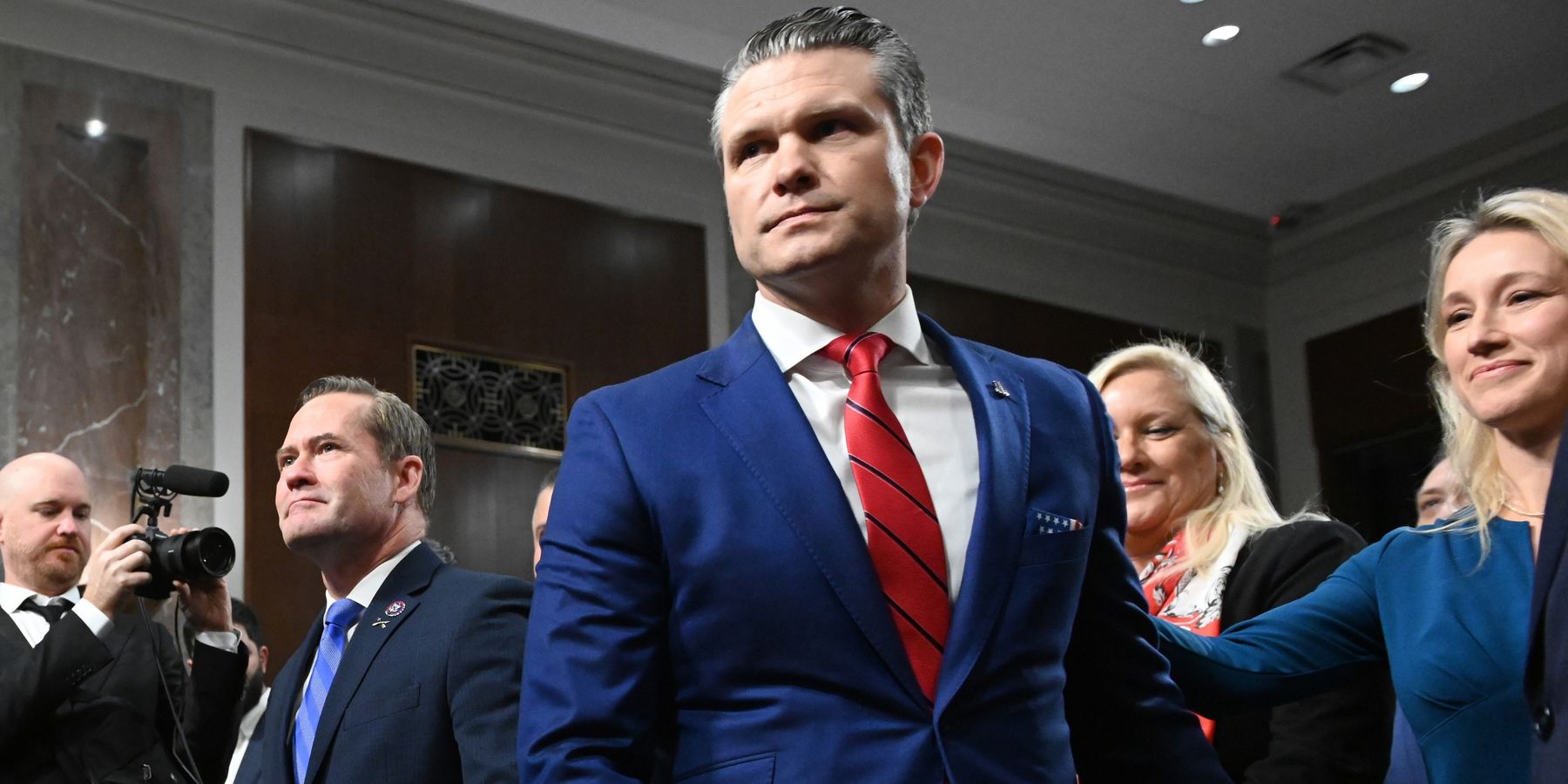After weeks of acrimony and consternation over his personal indiscretions, Pete Hegseth was confirmed tonight as secretary of defense. Republicans Mitch McConnell, Lisa Murkowsi, and Susan Collins voted against him, leaving a 50-50 tie which was broken by Vice President J.D. Vance in Hegseth's favor.
Now the fun begins. Hegseth, an Army veteran of the Iraq and Afghanistan wars, has testified that President Donald Trump has put his faith in him to "bring the warrior culture back to the Department of Defense. He, like me, wants a Pentagon laser-focused on lethality, meritocracy, war fighting, accountability and readiness.”
Most of the opposition from Senate Democrats revolved around Hegseth's personal indiscretions and public opposition to women serving in combat; to a lesser extent, his "frontal assault" on the "woke" culture he claims infected the institution, degrading every facet of force readiness and cohesion. Even fewer questions were devoted to how he used his pull as a Fox News host to get war criminals pardoned in the last Trump administration, which some might consider more problematic than a lot of the other stuff.
Hegseth, much like his new boss, is a bit of puzzle when it comes to how he plans to reform the military "from the top down" and put the "warfighter first." It is worth noting that many a defense secretary has promised reform. None in my professional lifetime have quite delivered, at least in any lasting sense that made the military leaner, meaner, ready for combat with strategy dictating investment, and not the other way around. My friend Winslow Wheeler, who banked four decades working on Capitol Hill and literally co-wrote the book, "The Pentagon Labyrinth: 10 Short Essays to Help You Through It," sees the era of Hegseth going in few different directions.
"The moment he is confirmed today, Hegseth will lose his protection from Trump and his base. Trump will now expect Hegseth to be the protector, but much more importantly, Hegseth will be on his own (along with his immediate staff) to deal with the public and private elements of being SecDef," Wheeler said in an email today. Specifically, he said, he must be prepared:
"Political bromides ("anonymous smear," warrior rhetoric) will not suffice to respond to unwanted questions from the press and in hearings.
For the canned, superficial questions he will get in hearings, he will need a minimal command of the facts on an ocean of subjects to avoid self-embarrassment.
He will gain a reputation inside the Pentagon for either being an empty suit as people like me expect, or he will win a reputation for actually knowing what is going on and in command of what it takes to run the building.
He will either piss of Members of Congress for being unhelpful with their earmark (pork) demands or as a 'problem solver' for satisfying those and other myriad demands; the same thing goes for dealing with the defense corporations and especially Silicon Valley and the Brahmins there who think they know how to run the Pentagon and acquisition.
In short, he will emerge as someone who is in command (for better or worse) like (GW Bush/Obama Sec Def Robert ) Gates or a pushover and weak reed like (Chuck) Hagel or (William) Cohen."
Worse yet, said Wheeler, "he could end up like (Donald) Rumsfeld and help to foist historic disasters driven by the agenda of others. He may think, like Rumsfeld, that the way to escape ignominy as an ineffectual manager is to be a driver of such a foisted disaster."
It could be that Hegseth will focus mostly on the lethal military side and work to make good on his pledge to "reestablish deterrence" and "re-build the military" through boosting domestic industrialization, modernizing the nuclear triad, and "rapidly fielding emerging technologies," all of which should make Silicon Valley, Wall Street, the 5 major primes, and assorted Beltway Bandits happy.
But he has also promised the DoD would pass an audit, an ambitious goal since it has never passed one. He has also criticized "feckless civilian leaders and foolish brass." His boss wants to end the Ukraine war quickly after nearly three years of the Pentagon pledging to help build up Europe and Kyiv with more and more weapons and assistance to fight it. And Trump doesn't seem keen on keeping U.S. troops out in the deserts of Syria and Iraq (his Pentagon opposed withdrawal the last time, including his Sec Def Jim Mattis).
It would be interesting if Hegseth's critique of "warped, woke, and caustic" policies ever extends to the nub of why the military continues to promote bad leaders who lose wars, as raised in this excellent piece by Ret. Navy Capt. Steve Deal just a few weeks ago, which went viral on RS.
Hegseth has certainly passed the first ring of fire. Now let's see how the Borg treats him, and, how he treats the Borg.
- Trump: 'our power will stop all wars' ›
- Yes, US generals should be fired ›
- Admin whips out the old ‘demeaning the troops’ attack | Responsible Statecraft ›
















